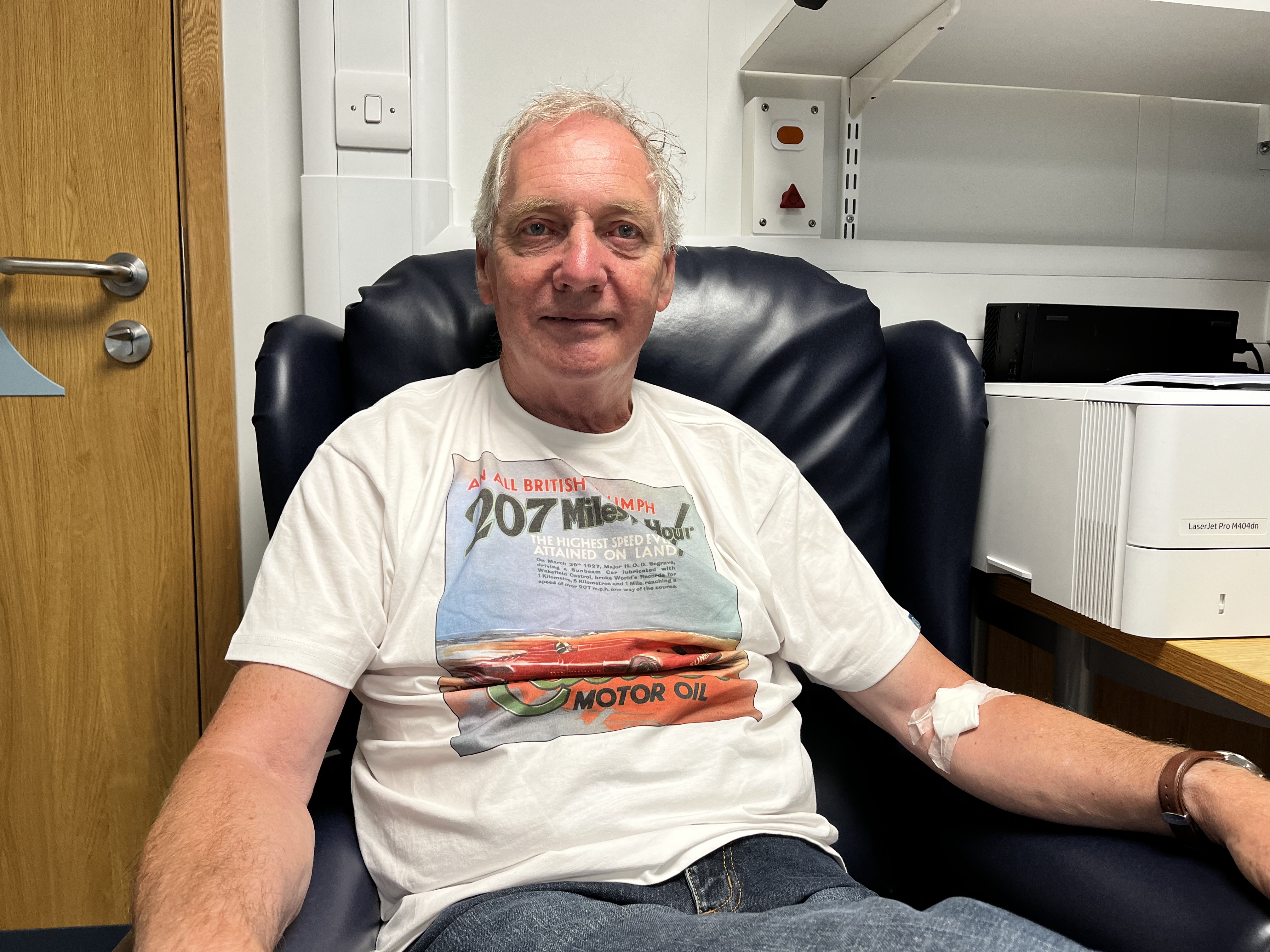Trial of new test to spot the early signs of 10 different cancers
A clinical trial is evaluating a new blood test that aims to identify multiple cancers in their very early stages.
The MODERNISED study is sponsored by University Hospital Southampton (UHS).
Over 450 patients have been recruited so far at five hospitals across Hampshire and Dorset. The study will also open soon in Manchester.
It is examining a technology not currently used in any other multi-cancer detection tests under investigation.
The trial is being run in partnership with the Southampton Clinical Trials Unit (SCTU) and biotech company Proteotype Diagnostics Ltd.
It is funded by the National Institute for Health and Care Research and the Office for Life Sciences.
The test looks for signals in the blood that suggest the immune system is launching a response to the first signs of cancer developing. It is also being evaluated to see if it can identify which type of cancer it is.
Ian Robinson, a 72 year-old grandfather from Fawley, is taking part in the trial at UHS. He chose to enter the trial after he was diagnosed with colorectal cancer following routine screening.

“I was sent the NHS bowel cancer screening kit. I think I had done four of these, normally with a negative result, but the most recent one indicated that there was a chance of cancer which was confirmed with a colonoscopy,” he explained. “There were no symptoms, no pain, nothing, so you would never know until it was much more advanced and therefore much more difficult to treat.
“Obviously the team here is helping me, so I’m delighted to participate and hopefully help improve the way things are done.”
“My mother died from cancer. I now have children and five grandchildren, so yes, research is absolutely vital. The more cancers that can be identified as early as possible, that can benefit future generations, then it’s obviously the right way to go.”
Around 385,000 new cancer cases are diagnosed every year in the UK. But some cancers can be hard to detect in the very early stages of the disease when they have relatively few symptoms or symptoms that can be mistaken for other things.
Dr Victoria Goss, Associate Professor and Head of Early Diagnosis Research at SCTU, said: “When cancers are diagnosed later, there are often fewer treatment options available to patients. Detecting cancer early means that treatment can begin sooner, increasing the chances of successful outcomes for patients.
“Improving early diagnosis is therefore a priority for us as researchers and for the NHS. But currently there are only 4 screening programmes in the UK and screening is only for one cancer at a time, so we are aiming to develop simple tests that can potentially pick up the signs of multiple cancers, giving the best possible chance of early, successful treatment.”
The MODERNISED study is being led by Professor Andy Davies. He is Director of the Southampton Cancer Research UK and NIHR Experimental Cancer Medicine Centre.
“Most current research into multi-cancer blood tests is focussed on detecting abnormal DNA that has been released into the blood stream by cancer cells,” he said. “But this circulating tumour DNA cannot always be detected in the very early stages of cancer.
“We are instead looking at levels of certain proteins found in blood. We know that even in the earliest stages of cancer, the body’s immune response can lead to higher levels of these proteins being released, and we believe these may be a good way to test for early signs of the disease.”
The trial will see samples taken from 1,000 patients with newly diagnosed cancer who are currently being treated on the NHS. It will also collect 350 control samples from patients with similar symptoms that are not cancer, and also healthy volunteers.
Professor Mike Lewis, NIHR's Scientific Director for Innovation, said: “We are proud to be funding this important trial in partnership with the Office for Life Sciences. This innovative test has the potential to improve early cancer detection simultaneously across a range of cancers, giving people a better chance of detection and then successful treatment. It's a great example of how research is supporting the government's mission to reduce the number of lives lost to the biggest killers.”